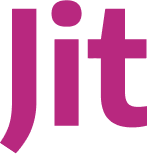About Jit
Jit is a forward-thinking company that enables development organizations to adopt a Minimum Viable Security (MVS) mindset and progress iteratively in a just-in-time manner. Founded in 2021, Jit has rapidly grown, expanding its user base and services, resulting in a continuous increase in data volume.
As the Head of Architecture at Jit, Ariel Beck oversees three development teams. As Ariel described: ‘Our architecture is entirely serverless, eliminating the need for a dedicated DevOps team. This decision aligns with our pay-per-use strategy, which is crucial for our scan-based product that experiences spiky loads. Containers were deemed too costly due to potential idle times.’
A Serverless Approach to Application Development
All of Jit’s applications are serverless, with some minimal container usage. These applications, including user-facing ones, operate behind API Gateway (APIGW). Their tech stack includes AWS Lambda, SQS, SNS, APIGW, S3, DynamoDB, Timestream, and other AWS services. They also use third-party services like MongoDB Atlas.
Despite the extensive use of serverless technologies, Jit faced challenges in achieving end-to-end visibility and efficiently debugging performance issues. Third-party services sometimes acted as black boxes, complicating and elongating troubleshooting. When errors occurred, they required comprehensive visibility from the initial request to the final response to understand the flow in its entirety.
To help solve these challenges, Jit opted to look for market solutions rather than developing in-house monitoring tools, as their expertise lies elsewhere. As Ariel stated, “Initially, we used Epsagon for observability. As Epsagon was shut down, we needed a solution that was easy to deploy, user-friendly, fully supported serverless architectures, integrated with Slack, provided excellent vendor support, and was cost-effective.”
Jit evaluated several solutions, including Coralogix, Helios, Honeycomb, and Datadog. Lumigo stood out due to its quick setup and ease of use. Unlike other solutions, which were complex and time-consuming to configure, Lumigo’s auto-tracing feature was operational within 30 minutes.
Jit Resolves Serverless Issues 80% Faster with Lumigo
Before Lumigo, Jit relied on Epsagon for monitoring and troubleshooting. Lumigo’s additional features and more straightforward setup provided a superior experience. Or as Ariel put it, “Lumigo has made error identification and resolution more manageable, even revealing configuration issues, such as warmer configurations, that our previous tool, Epsagon, missed. This has enhanced our overall observability and debugging capabilities.”
Lumigo’s automated distributed tracing and the ability to view complete invocation flows have been invaluable in speeding up troubleshooting times by 80%. This has streamlined Jit’s alert response process and improved their error resolution time. Lumigo’s ease of use and quick setup significantly increased Jit’s overall productivity.
Ariel states, “Implementing Lumigo has transformed our observability approach, making managing and troubleshooting our serverless architecture easier. With Lumigo, we have achieved higher operational efficiency, ensuring we can deliver our users a seamless and reliable experience. Our developers have noted that they appreciate Lumigo’s end-to-end flow visibility. This has made identifying and resolving errors more straightforward, significantly improving operational efficiency.”
About Lumigo
Lumigo is an observability and troubleshooting platform that autonomously deploys in under 5 minutes with a single click, automatically capturing and contextualizing all of the data developers need to troubleshoot microservice issues in production. Lumigo is the only observability platform that enriches traces with complete in-context request and response payloads and correlates them to the relevant logs and metrics, enabling developers to resolve issues up to 80% faster.









